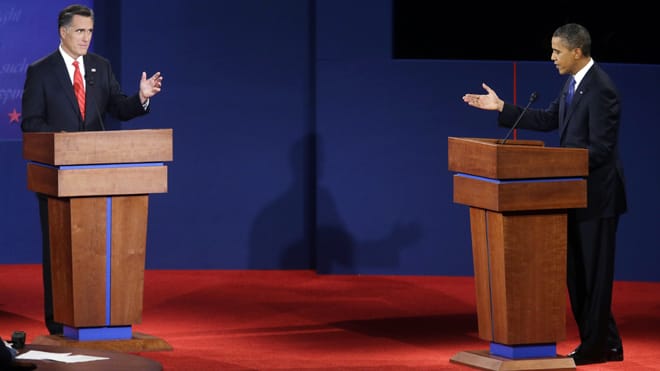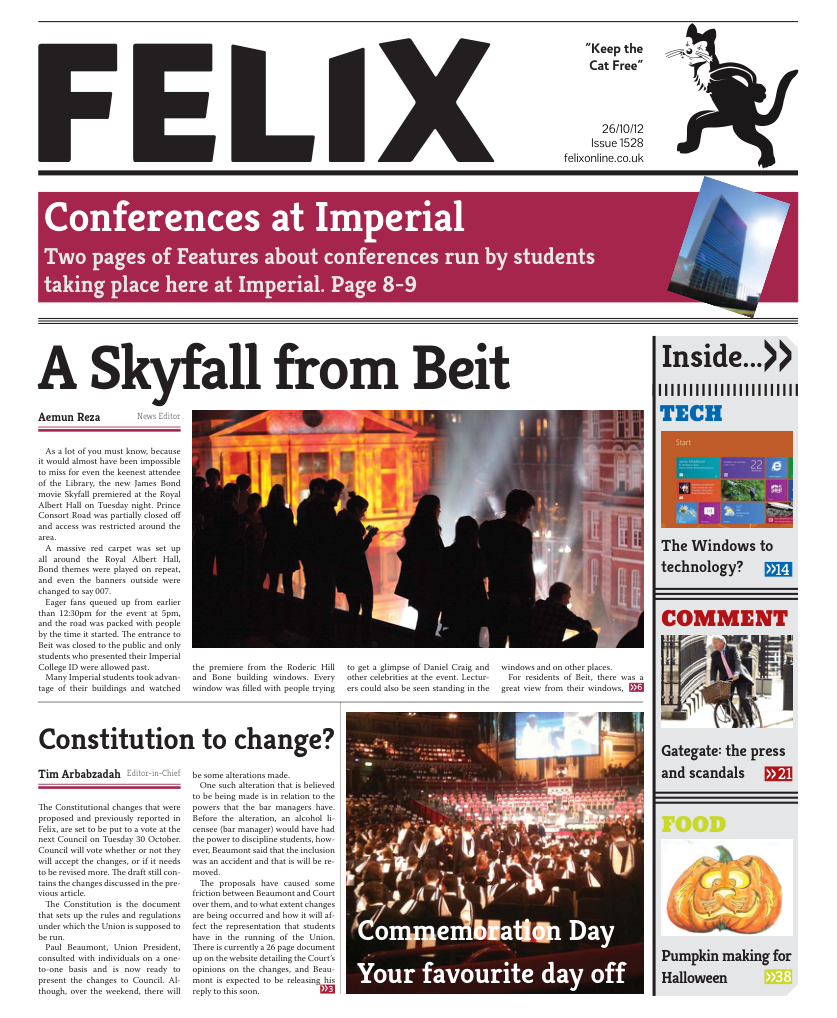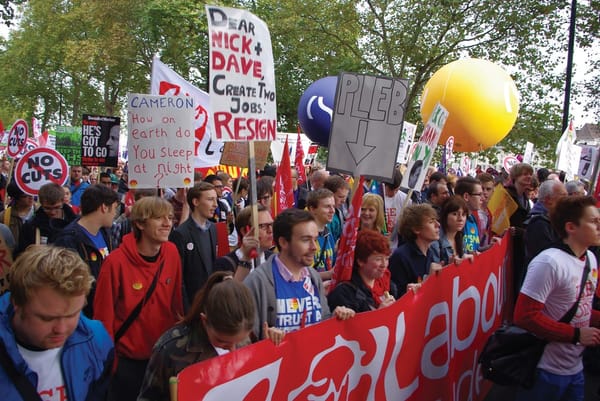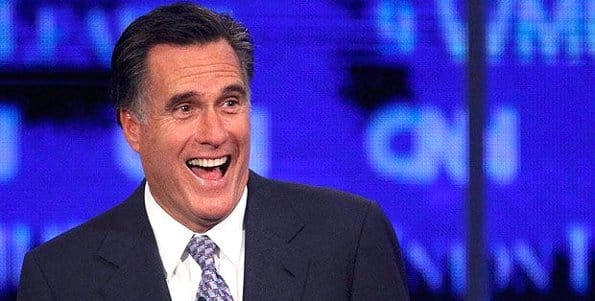Obama vs. Romney: The Presidential Debates Blow by Blow
Emilie Beauchamp gives the account of the latest goings on in the US Presidential Election

For the whole month of October, millions of people have held their breath as the highly climatic presidential debates took place, culminating in next Tuesday’s federal election. Beginning on October 3rd, the series of three debates enable the Democrat and Republican hopefuls to hammer their electoral platform onthe American populace and try to smash their opponent’s arguments into pieces. Here’s a recap for those who missed the fights:
Round 1 : domestic policy The energy around presidential debates usually starts slow and steadily builds. Yet this year we have seen Romney take a full-blooded start and deliver an almost knockout performance in the first debate on domestic policy on Wednesday, October 3rd. For the 90 minute debate, Romney pounded Obama on his dismal record on jobs, debt and economic growth. What didn’t help in countering the Republican challenger’s feistiness was Obama’s apparent apathy – he simply didn’t look like he wanted to be there.
Even when the candidates discussed Medicare – with Obama hinting Romney would turn it into a voucher system – most of the talk was around domestic economy, or how the US would get out of its rut. The stagnation that lingered throughout the Obama administration didn’t help as a proof of the President’s capabilities, and Romney took full advantage of this. As he relentlessly attacked Obama on his failure to strengthen the economic situation in the US, the only point the incumbent managed was to sneer at the vagueness of Romney’s tax cuts and deficit reduction plan.
CNN/ORC International poll on who won the debate: Romney 67%, Obama 25%.
Round 2: Up for Grabs After the first presidential debate, dominated by Romney, which spread fears that Obama had lost his fierce spirit, the second presidential debate held on October 16th saw the President take back the combative attitude that animated his first campaign. The candidates’ personal hostility towards one another clearly showed through almost aggressive clashes over topics that covered domestic energy production, taxes, the attack on the US consulate in Libya, immigration and women’s issues.
While the debate started on level grounds, the fighting began when energy policy was at play. While both candidates are proponents of energy independence – and so is the rest of the American population – their strategy to get there differs highly. Obama made a point of the need for renewable energy on top of exploiting shale gas and increasing domestic oil and coal production, while Romney promised a pipeline to provide the US with oil from the Canadian tar sands and a surge in offshore drilling in Alaska. A tangle over whether energy production on federal land increased or decreased in the last four years brought the opponents to a close up, but the mixed statistics served actually made the entire argument confusing and inconclusive.
Romney started losing steam when targeting Obama’s reaction to the attack made on the US consulate in Benghazi, the President tactfully volleying back on criticism for prematurely condemning the source of the attack as an ‘act of terror’. But it was over a discussion on women’s working conditions that Romney took it on the chin: wanting to highlight he was encouraging of women roles at the office, he declared he had been through “whole binders full of women” when looking to recruit cabinet members as Massachusetts governor…
As the antipathy between the two candidates rose in the last minutes of the debate, with both sides speaking over their allowed period (2 minutes), Obama delivered the final blow by mentioning the secret video in which Romney dismissed 47% of the American voters as freeloaders.
CNN/ORC International poll on who won the debate: Obama 46%, Romney 39%.
Round 3 : foreign policy The second debate set the stage for a real combat between Obama and Romney, with high hopes that the last and typically most-watched debate could dislodge Homeland on the viewership in US homes. Could Obama maintain his ‘Yes we can’ momentum despite the weight of his first term? Would Romney’s grip on his electoral platform be as sturdy as his immaculate hair? Unfortunately, both candidates seemed to have thrown all their best punches in the prior wrangles and kept themselves very moderate on last Monday, October 22nd’s debate, centered on spring-revolutionized-Egypt, messy withdrawals in Afghanistan, nuclear threats from Iran, the looming power of China and… the national deficit?
Truth is: there aren’t massive differences between Democrat and Conservative policies on most foreign matters. Romney was not disagreeing with Obama’s first term tactics, but mostly just said he could have done better. After Romney’s tactless remarks about the London Olympics or his inconsistent stances on Afghanistan, the rest of the world could question his credibility on the world stage, but American voters do not care that much about foreign policy at the moment, and both candidates know that well.
Obama defended his cuts on military expenditure, yet the bottom line of Romney discussing the US defence budget isn’t really about whether the US should spend as much as China, but rather a matter of national economic stimulus. In fact, the discussions of the third debate readily veered towards domestic policy (even if they shouldn’t have), reiterating the same lines as the first and second debates. In a nutshell, the last debate was not very informative and a bit dull. Back to primetime telly.
CNN/ORC International poll on who won the last debate: Obama 48%, Romney 40%. (With a 4.5% error margin…)
So what is the verdict in the end? It’s a split decision. There are no clear cut winners from the presidential debates. With some key issues that have not been discussed during the debates – gay rights, abortion and climate change amongst others – current polls waddle every day. This means the next President of the United States will be decided by a small proportion of still undecided voters – the equivalent of holding the world in their hands.







